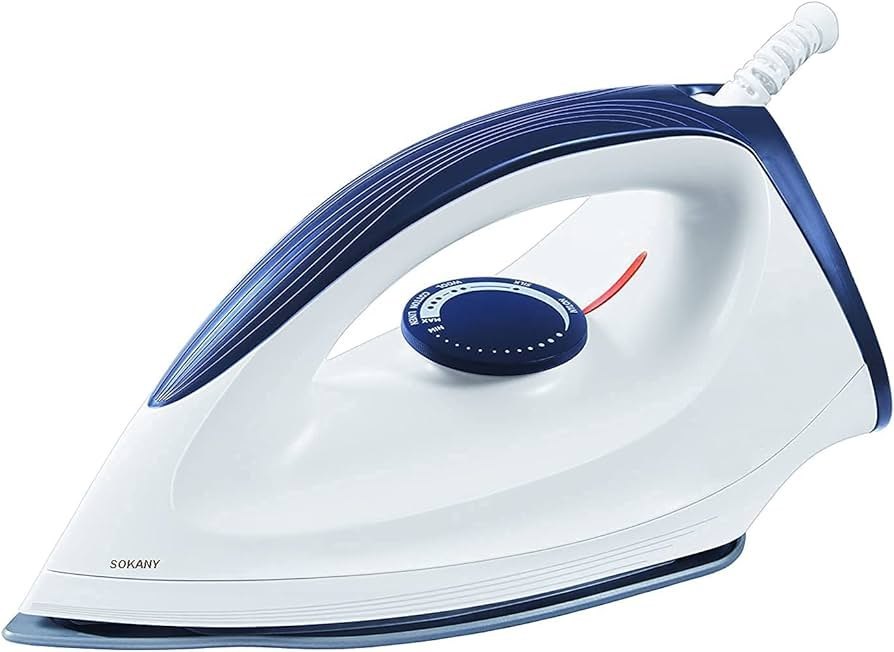Household Electrical goods
Electric Irons
Strategic Recommendations for Safety of household and similar electrical appliances – Part 2/Sec 3: Particular requirements for Electric Irons
- Begin BIS Certification Immediately
Manufacturers and importers must apply for BIS licence for electric irons (IS 302 Part 2/Sec 3) without delay. - Consult Compliance Professionals (ERA)
Engage ERA to manage testing, application, factory audit readiness, and BIS documentation. - Reach Out for Support
📧 cs@eraglobal.co.in | 📞 +91 95992 96331 | 💬 WhatsApp
For support with test planning, certification timelines, and compliance queries. - Track QCO Amendments & Exemptions
Subscribe to ERA Newsletter for Stay updated on BIS Gazette notifications and exemption rules under the 2003 QCO framework. - Ensure Marking & Documentation
Apply ISI mark only after certification; maintain QA records and traceability for audits.

| Section | Details |
|---|---|
| Product Name | Electric Irons |
| Applicable Indian Standard (IS) No. | IS 302 (Part 2/Sec 3): 2008 |
| Title of Indian Standard | Safety of household and similar electrical appliances – Part 2/Sec 3: Particular requirements for Electric Irons |
| Quality Control Order | Electrical Appliances (Quality Control) Order, 2003 (covered under household electrical appliances category) |
| Notification & Amendments | Notified vide S.O. 189(E) dated 17 Feb 2003 under the Electrical Wires, Cables, Appliances and Protection Devices and Accessories (Quality Control) Order, 2003; later amendments through S.O. 165(E) (5 Feb 2004), S.O. 1172(E) (22 Aug 2005), S.O. 512(E) (19 Feb 2009), S.O. 2058(E) (7 Aug 2009), and S.O. 2604(E) (19 Oct 2010). |
| Final Enforcement Date | 17 February 2003 (original QCO enforcement) |
| Objective & Scope | To ensure electrical and mechanical safety, fire prevention, insulation integrity and user protection in domestic and similar-use electric irons. |
| Products Covered | Household electric dry irons and steam irons, portable and hand-operated, intended for use on single-phase AC supply up to 250V. |
| Exemptions | Export-only products exempted under proviso of QCO (subject to approval and compliance with export-only marking). |
| Industries Impacted | Appliance manufacturers, iron OEMs, importers, distributors, retailers, and suppliers of electrical components. |
| Mandatory Compliance | BIS certification under Scheme-I is mandatory; ISI mark must be displayed on the product and packaging before sale. |
| Next Steps for Stakeholders | Manufacturers must apply for BIS licence, conduct testing in BIS-recognised labs as per IS 302 (Part 2/Sec 3), undergo factory inspection, and implement batch QA. |
| Legal Framework Provision & Enforcement | Enforced under BIS Act, 2016 and BIS (Conformity Assessment) Regulations, 2018 through inspections, seizure, and penal provisions. |
| Penalties for Non-Compliance | Seizure of non-conforming goods, cancellation of licence, monetary fines, and prosecution including imprisonment for repeated violations. |
| Conclusion | Since 17 Feb 2003, all electric irons sold in India must conform to IS 302 (Part 2/Sec 3) with BIS certification and ISI marking. |
| References / Annexures | IS 302 (Part 2/Sec 3):2008; QCO Notifications S.O. 189(E) [17-02-2003] and subsequent amendments (S.O. 165(E), S.O. 1172(E), S.O. 512(E), S.O. 2058(E), S.O. 2604(E)). |
Ready to start your certification journey?
Let us help you navigate regulatory challenges and achieve certification with ease. Leave us your details, and we’ll get back to you—or request a free consultation today.
Get in touch with us today
Notification
Electric irons fall under the Electrical Wires, Cables, Appliances and Protection Devices and Accessories (Quality Control) Order, 2003 notified via S.O. 189(E) dated 17 February 2003. Subsequent amendments were made via S.O. 165(E) (2004), S.O. 1172(E) (2005), S.O. 512(E) (2009), S.O. 2058(E) (2009), and S.O. 2604(E) (2010).
Enforcement Timeline
The QCO has been in force since 17 February 2003, making BIS certification mandatory for all electric irons marketed in India.
Overview
IS 302 (Part 2/Sec 3):2008 specifies particular safety requirements for electric irons, supplementing the general safety requirements of IS 302 (Part 1). It addresses risks of electric shock, excessive temperatures, mechanical hazards, fire risk, and abnormal operation.
Objective & Scope
The primary objective is to ensure the safe design, insulation integrity, and operational reliability of domestic and similar-use electric irons to prevent hazards to users.
Products Covered
Dry and steam household electric irons operating at supply voltages up to 250V AC, intended for general domestic use.
Exemptions Provided
Export-only consignments are exempt from mandatory BIS certification subject to approval and proper markings, but no exemption applies for domestic market sales.
Industries Impacted
Appliance manufacturers, component suppliers, OEMs, importers, distributors, retailers and e-commerce sellers are directly impacted.
Mandatory Compliance Requirements
Manufacturers and importers must secure a BIS licence under Scheme-I, conduct prescribed laboratory testing, undergo factory inspection, and display the ISI mark on the product and packaging.
Next Steps for Stakeholders
Applicants should initiate BIS certification immediately, align production and testing facilities with IS 302 (Part 2/Sec 3), and update quality control and labelling processes to ensure compliance.
Legal Provisions, Enforcement & Penalties
The Order is enforced under the BIS Act, 2016. Contraventions (e.g., manufacture/sale of non-conforming or non-marked goods) attract actions including search/seizure and prosecution. Section 29(3) prescribes penalties up to two years’ imprisonment and fines (with specified minimums and escalation for repeat offences).
Conclusion
Since 17 Feb 2003, electric irons must mandatorily conform to IS 302 (Part 2/Sec 3). BIS certification and ISI marking are compulsory prerequisites for manufacturing, import, distribution, and sale in India.
Ready to start your certification journey?
Let us help you navigate regulatory challenges and achieve certification with ease. Leave us your details, and we’ll get back to you—or request a free consultation today.
